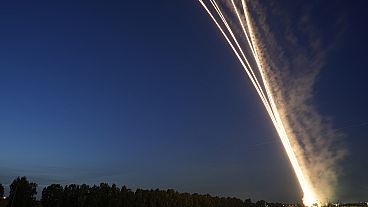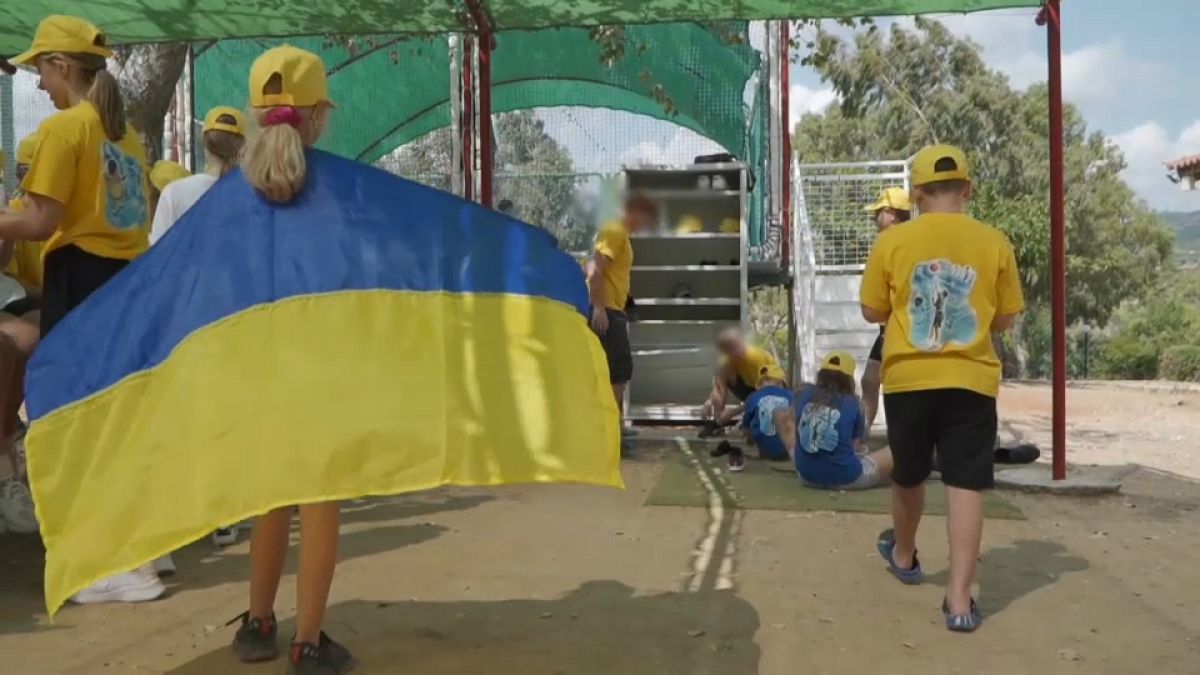The camp officials know that they cannot erase the painful memories of the war. Yet, they hope they are able to offer a few days of freedom and peace.
More than 600 children from the Ukrainian city of Bucha are spending the summer in camps across Greece.
The city near Kyiv has become a symbol of the brutality of the war in Ukraine. In March, 458 dead bodies were found in the area after Russian forces withdrew, including 12 children.
Some 21 people escorted the children -- aged between six and 15 -- from Ukraine to the camps in Greece.
"Our children have not been able to live a normal life since February,” said Olga Trempoltseva, one of the people who escorted the children.
“Everything was sad and hard. And here, in Greece, we got joy, a good mood, the sun, the swimming pool, the air, the sea. We are happy."
Children are accommodated in six camps in Halkidiki, in northern Greece; in Peloponnese, in the southern part of the country; and in the region of Attica, about 40 minutes from Athens.
During their stay at the camps, the children learned how to ride horses, archery, and how to rock climb and swim in the camp's pools. They also carry out educational trips to museums and archaeological sites.
The camp officials know that they cannot erase the painful memories of the war. Yet, they hope they are able to offer a few days of freedom and peace.
“Our goal is to make them forget the war in Ukraine. I don't know if that's possible, but we're doing the best we can,” said Magda Katsipanoy, a camp leader.
“We want children to get familiar with and love the camping lifestyle and way of life. We want them to be happy and return home with good memories. They make new friends and we hope that they will stay in touch with their new buddies, when they go back home.”
Most of the children do not speak English, and Ukrainian and Russian speaking translators are on the sites to help with communication.
“For me, as the head of this team, it is an unprecedented experience. Communication is not easy, we don't speak their language,” said Vasilis Dontos, a community and team leader .
“Yet, with the help of translators we manage to get along and get closer. Some children remember moments and pictures of the war. They get emotional, upset and some burst into tears. Fortunately, this lasts a while. Soon, they find their spirits and return to the sports they love so much.”
After their stay, the children will return to Ukraine.


